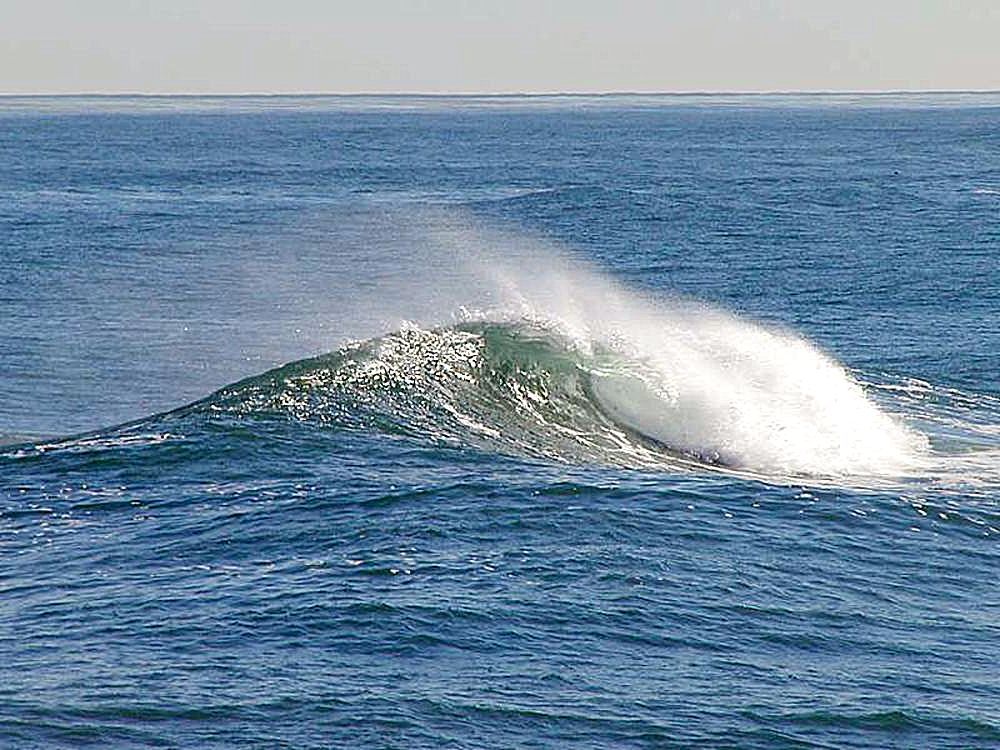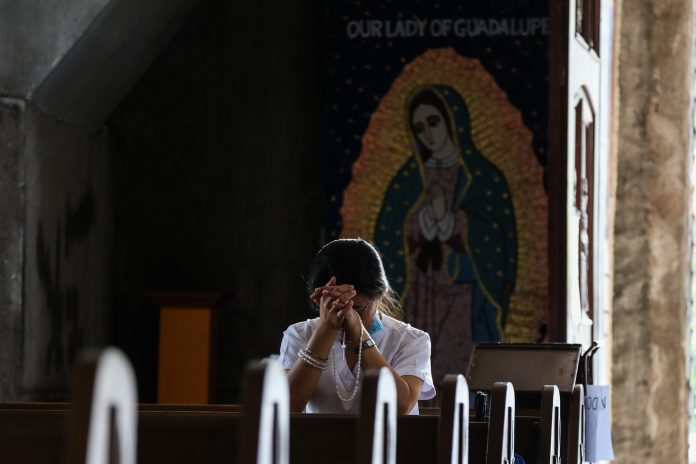Today’s readings make me understand why St. Paul is convinced that the greatest of all gifts is LOVE.
He says it in 1 Corinthians 13, which is a continuation of his reflection about the gifts of the Holy Spirit, which began already in chapter 12. He ends that chapter by telling the Corinthian community to aspire for what he calls the “more excellent gifts.”
Then when he ends his reflection in Chapter 13, in v.13, he identifies them as the only gifts that remain. All others, he says are passing. He says, “So faith, hope, love remain, these three; but the greatest of these is love.”
This is not a new idea; he is drawing it from his Jewish faith. And it is what our Gospel today is about. In answer to the question as to which of all the commandments is the first, Jesus gives, not one but two: they are actually both known to Judaism.
The first one comes from Deuteronomy 6:5-6, which happens to be our first reading today. The Jews call it THE GREATEST COMMANDMENT: To love God wholeheartedly. The second comes from Leviticus 19:18 — where the author reminds Israel to “Be holy, as Yahweh their God is Holy.” And what does it mean to BE HOLY LIKE GOD? It is To love your neighbor as yourself.
They are not new. They have always been there in the Jewish faith. What is new is that Jesus puts them together as two inseparable commandments: to love God wholeheartedly, and to love our neighbor as ourselves. They are supposed to be greater than all other commandments, all other religious obligations, all other rules and regulations.
In fact, as Saint Paul keeps repeating in 1 Corinthians 13, “Without LOVE…, all other gifts are nothing.” And I dare say, without LOVE, all other commandments are meaningless. This is the reason why I personally prefer to call the commandments COMMITMENTS.
Sa Tagalog mas gusto kong tawaging KASUNDUAN kaysa kautusan. Walang kabuluhan ang kautusan kung hindi ito nakabatay o nakatayo sa pundasyon ng KASUNDUAN. Sa Ingles, COVENANT. And a covenant is a relationship: with God and with our fellow human beings, a relationship of LOVE.

There is a Hindu-Buddhist myth that explains why the ocean is salty. In Tagalog we would call it ALAMAT — ang alamat kung bakit daw ang dagat ay maalat.
Let me just summarize the story. It says, “Once upon a time, when the ocean’s water was still sweet, the ocean had an encounter with a beautiful doll made of salt. They were both in that stage in their lives when they were asking, WHO AM I? When they met, they were attracted to each other. They both shifted their questions to WHO ARE YOU? And because they were drawn to each other, when the ocean said, ‘Come, and maybe we will both find out who are are.’”
As the salt doll waded into the ocean, she began to dissolve. Before she totally immersed herself, both the ocean and the salt doll cried out, NOW I KNOW WHO I AM! And that is supposed to explain why being ocean and being salty can no longer be separated from each other.
It is a very philosophical story. It is a story of LOVE. Christians have made use of this story to understand the relationship between God and humankind, between humans and our fellow human beings. We discover who we are only by LOVING.
But this love has to be qualified:
FIRST, to love God with all our hearts, with all our souls, with all our minds, and with all our strength. In short, TO LOVE GOD WHOLEHEARTEDLY. Why? Because that is how God loves. God loves us wholeheartedly. And since we are God’s image and likeness, we are supposed to discover who we are by responding to God’s love for us in the same way: with all one’s being. Meaning, in a manner that is ready to give up everything. Remember how Jesus said, “There is no greater love than to be ready to lay down one’s life for the one you love.”

Saint Paul called it KENOSIS, a total emptying of self. A readiness to lose oneself in order to find oneself. A readiness to be totally dissolved in order to enter into communion with the Beloved.
SECONDLY, to love one’s neighbor as oneself. Meaning, to learn to see in another person one who is NO LONGER OTHER. Sa Tagalog, HINDI NA IBA. To see in every other person one’s own brother, sister, mother, father, son or daughter, or friend. To learn to feel the joys of others as your own, to learn to feel the pains of others as your own. It is the natural consequence of learning to love wholeheartedly.
In the Gospel of Luke, there is a further elaboration on this second commandment. It is occasioned by a follow up question raised by the scholar of the law: WHO IS MY NEIGHBOR? It is a question which Jesus answers with a story, the parable of the Good Samaritan. The point is, you don’t look for the neighbor in the others. Rather, you find that neighbor in yourself. Instead of WHO ARE YOU, you ask WHO AM I?
Society is very restrictive about the definition of the NEIGHBOR. The neighbor is my blood relative, my fellow citizen, my fellow believer, etc. Jesus suggests, instead of asking WHO IS MY NEIGHBOR, will you be a neighbor to every fellow human being no matter what his race, or religion, gender or social status might be?
This is what FAITH is. It is about LOVE. If there is no LOVE, there is no faith to talk about. Call it a religion, but don’t call it faith. I hope that makes you understand why I often say the most Godless people in this world are not those without religion but THOSE WITHOUT LOVE. Augustine says, “Where love is, there God is.” So, there is no love, there is no God.
There is a song that we used to sing in the seminary which seems to be inspired by the Story of the Salt Doll. It is a beautiful summary for our reflection today.
It says:
“Lose yourself in me, And you will find yourself.
Lose yourself in me And you will find new life.
Lose yourself in me and you will find yourself,
and you will live, yes, you will live in my love.”
Homily of Bishop Pablo Virgilio David of Kalookan for the 31st Sunday in Ordinary Time, Oct. 31, 2021, Mark 12:28b-34









